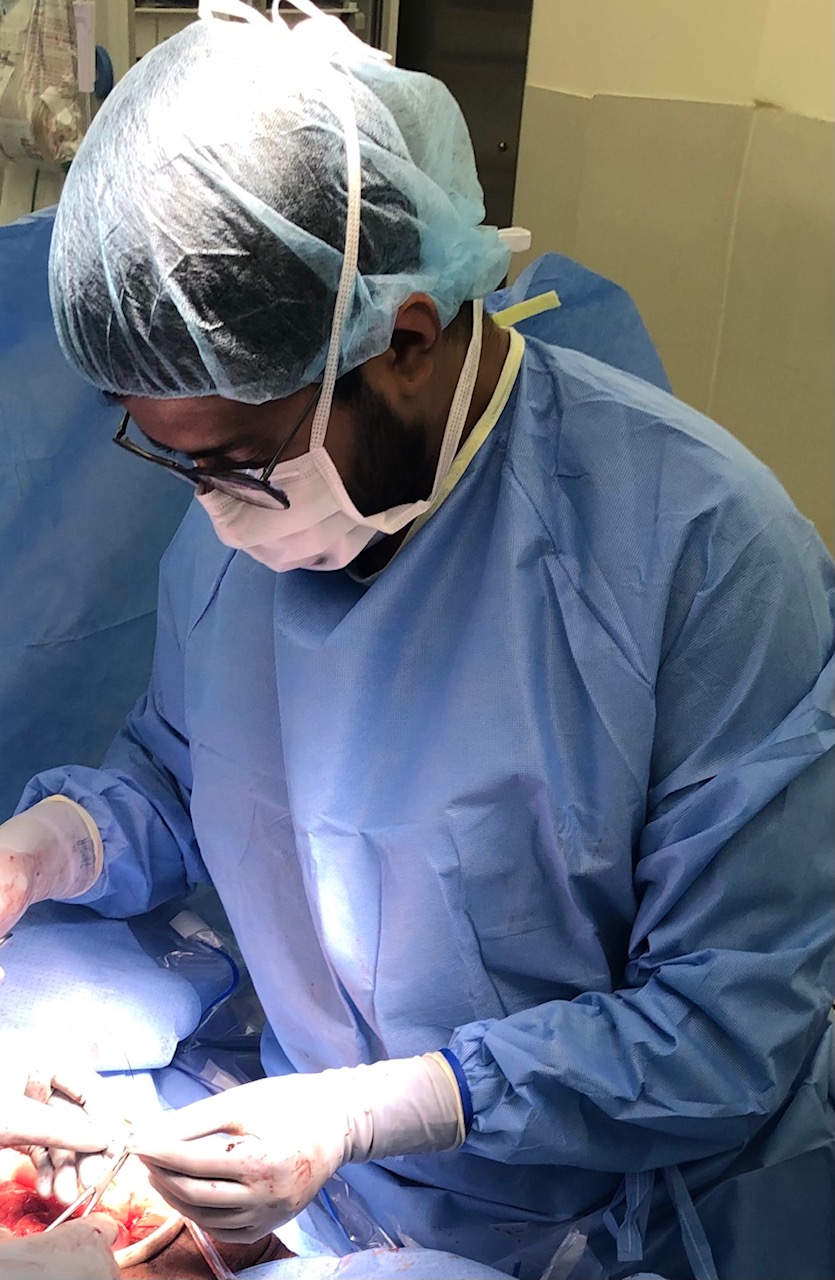
Two common and high-risk mutations in gastrointestinal cancer patients, Ras and p53, are the focus of ongoing research at Sylvester. Jashodeep Datta, M.D., an assistant professor of surgery in the Division of Surgical Oncology and a member of the Merchant Lab, is collaborating with division chief Nipun Merchant, M.D., in the investigation of molecular and immunologic vulnerabilities in the tumor microenvironment that underlie the synergy of Ras and p53 in gastrointestinal cancers. Targeting such vulnerabilities might unlock the door to new treatment approaches.
Details about the activities of these two genes, which have key roles in several cancers, came to light in two published studies conducted by Dr. Datta and colleagues at Memorial Sloan-Kettering Cancer Center while he was a surgical oncology fellow there.
The deadly teamwork of mutant forms of Ras and p53 in colorectal cancer patients who are diagnosed and treated early but nonetheless have poor survival is discussed in one manuscript in Clinical Cancer Research. The greater risk of rapid decline and death for patients with early gastric cancer who have two concurrent forms of p53 alterations is the subject of the second study in the British Journal of Surgery.
While many scientists have studied the influence of Ras and p53 in tumor cell lines and in preclinical models, said Dr. Datta, studying the confluence of these two important genes in human cancer represents a significant research advance.
To better understand how Ras and p53 mutations manifest, sometimes colluding, to influence survival in human cancer, Dr. Datta and his colleagues took what they call an “extreme outlier” methodology to address this question. That is, they studied one group of patients, with either colon or gastric cancer, whose tumors had been detected early and who did well after treatment and lived many years. They compared these patients with a clinically similar group who did poorly and lived only briefly after treatment. All subjects, with both kinds of cancer, had had their relatively small tumors removed surgically, with clean margins. “We suspected that the survival differences might be reflected, in part, in the molecular makeup of the patients’ tumors,” said Dr. Datta. Those suspicions proved correct.
In colorectal cancer patients, the researchers compared the genetic profiles of two groups of extreme outliers with regard to survival. One group of 17 patients lived for two years or less post-treatment, while the other group of 18 patients lived longer than 10 years post-treatment. They found the simultaneous presence of mutated Ras and p53 genes was predictive of poor survivorship.
The study concerning early gastric cancer patients had similar results. A significantly higher occurrence of two concurrent p53 alterations was detected in patients with poor survival.
“We’ve known for a long time that these genes seem to synergize to engender more aggressive cancer biology” in animal models, Dr. Datta said. “But this has never before been explored this exhaustively in the clinical realm.”